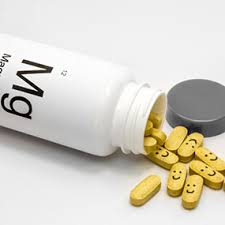Last menstrual period date:
One of the first things a doctor will prescribe for a newly-pregnant woman is a prenatal multivitamin. In this blog, you will find out the importance of vitamins in pregnancy.
Most of the pregnant women do not take vitamins during their pregnancy. Ladies, this is a serious error in judgment! Really, you should’ve already been taking a multivitamin – you’ll see why. 
Sure, if you’re following an exemplary diet rich in all the nutrients you need AND if you live in the tropic zone, maybe you don’t need it – but chances are you’re one of the vast majority of women who are deficient in one or more nutrients or vitamins to take when pregnant: vitamin D, iron, and copper being some of the most common. It doesn’t sound like a big deal – after all, you feel just fine, right? – but iron or copper deficiency is one of the leading causes of pregnancy failure. Up to 30% of failed implantations and first-trimester miscarriages are to women who are deficient in one or both of those vital minerals. The need for copper and iron is not constant throughout the pregnancy: it starts off fairly lightly but by the time the Bun is ready to come out of the oven, your body is screaming for it. Yes, you’re probably going to get constipated – nobody likes that bit – but there are safe, effective remedies for that.
Folic Acid – there’s another common deficiency. Without enough Folic Acid or other vitamins to take when pregnant, a mother runs the risk of giving her baby a Neural Tube Defect. If she’s lucky, her baby will be born with “only” a cleft lip and/or palate. That’s not so bad – a lifetime of ear and sinus infections, inflamed adenoids and tonsils, multiple surgeries to close up the gaps as an infant and toddler, recurring nose jobs for the rest of his life – not a problem. If she’s unlucky, her baby could be born with spina bifida. Who gets pregnant and thinks “Gee, I think my baby really needs to have a short lifetime full of pain and suffering with bladder and bowel dysfunction, poor social skills, impaired executive function skills, and a lower IQ”? Nobody – but that’s what is meant by “Oh, I don’t take those vitamins – I don’t like them.” If she pulls the short straw, her baby could be born anencephalic. Anencephaly happens when the neural tube doesn’t close over at the brain end – the baby will never gain consciousness and dies shortly before, during, or after birth. Neural tube defects occur within the first month of pregnancy (before you even knew you were pregnant!) which is why every woman should take a multivitamin. Most pregnancies are not planned, so you need to make sure that, if you’re going to get pregnant, your baby has everything he needs to build a strong, sturdy, whole body.
 Calcium and its closely related partners Phosphorus and Magnesium – there’s another matter. You may be getting “enough” in your diet on a normal basis but when you’re pregnant, your need for those critical bone-building minerals skyrockets incredibly. If you’re not getting enough in your diet to meet the needs of both you and your baby, then your body will strip the minerals from your teeth and bones to put toward the higher priority of giving your baby a skeleton and neural tissue. That means you’re more likely to suffer dental problems as your teeth become more porous and, later on in life, you’re more likely to develop osteoporosis.
Calcium and its closely related partners Phosphorus and Magnesium – there’s another matter. You may be getting “enough” in your diet on a normal basis but when you’re pregnant, your need for those critical bone-building minerals skyrockets incredibly. If you’re not getting enough in your diet to meet the needs of both you and your baby, then your body will strip the minerals from your teeth and bones to put toward the higher priority of giving your baby a skeleton and neural tissue. That means you’re more likely to suffer dental problems as your teeth become more porous and, later on in life, you’re more likely to develop osteoporosis.
You’ve probably seen it going around the social media and “crunchy granola” sites – “Multivitamins result in lower life expectancy!!!” in big screaming headlines. Let’s clarify that one right now: the participants in that study were not selected properly. Many of them were already sick with various ailments that ultimately proved fatal. They weren’t asked when they’d started taking the multivitamin – it’s safe to assume that a good number of them were already ill when they started taking the multivitamin in a last-ditch effort to stave off the disease (kind of like how people on death row suddenly discover religion). If you have a hundred people who are sick with various cancers, heart diseases, etc, and they all take multivitamins and then die sooner than people who are not taking multivitamins (because they feel just fine, thank you), then yes – you could draw the conclusion that multivitamins are bad for you. But should you?
Bottom line: take your multivitamin! It’s good for you and it’s good for your baby! For more information on prenatal vitamins to take when pregnant and what they can do for you, WebMD has an excellent resource page here.
My content




